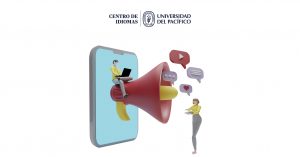We need to consider many aspects of learning a new language and how to develop students’ listening skills is an essential one of them. As Charles Fries stated, quoted in Rojas, E. (2022) (1), it is crucial to develop this skill to be able to speak. To be capable of perceiving the sounds is indispensable to be able to produce them.

You can neither repeat what you cannot hear nor articulate it if it does not exist in your Spanish schemata.
Here are some ideas you need to consider:
- For example, identify the similarities and differences between Spanish and English. Use this information to amplify your knowledge of the target language and in that way avoid misinterpreting what you hear. You can just google “phonetic differences between English and Spanish” and a lot of sites will appear.
- Work on improving your bottom-up processing (2) by doing exercises in which you will have to recognize, understand and frequently practice production of connected speech, word boundaries, weak forms, contractions and so on. This is crucial since it is necessary to reconstruct your schemata by helping your ears and mind become not only acquainted with this new system of sounds but master it.
- Listen to audio material while viewing the script to start sounding out the words, as well as rhythm and intonation.
- When working with the script, you can also read after the speaker or shadow them trying to imitate their pronunciation, intonation, and rhythm. Remember, it is necessary to reconstruct your schemata.
- Record yourself: that will help you to recognize how you are pronouncing, and, little by little, you will reconstruct your schemata completely.
- Lots of input: Become passionate about listening to various kinds of materials such as podcasts, YouTube videos, songs, lectures, and watch films in English, TV shows, TV series and so on. For the latter, make sure to use the audio script on the screen.

I do no need to point out that times have changed. Our students are more exposed to different kinds of input, and we need not only to update our methodology but also to polish our English. We must be ahead of the possible comparisons.
Here are some apps that you can explore to take your English to the next level:
Bussu, Elllo.org, English Listening and Speaking, EnglishListening.com, English Listening Practice-World Talks, LearnEnglish Podcasts, Listen Pal and Tandem.
You and your students can also give a try to other platforms. For example, “Zenzengo” shows a reading passage with a number of exercises and the first one is to listen to the audio of the reading passage given. This could be used to practice pronunciation by shadowing the speaker and recording yourself. After that, compare your recording and check if you have been able to imitate the narrator as much as possible to say that you have mastered the pronunciation.
Another similar one is “Listen a minute.” A narrator reads short reading passages. Immediately later come exercises using the very same passage. You can do the same strategy used for “Zenzengo.” The difference with this platform is that it comes with different topics from A to Z which makes it very entertaining. For example, “accidents” and “zoo”.
If you want to have some fun while improving your pronunciation, you can try “Lyricstraining”. Here you can practice by filling the blanks with what you can hear, and then check your answers
One more, “ISLCOLLECTIVE.” This one is very useful if you need to practice listening within a grammar context. They have prepared extracts from well known films. To do the exercise proposed, you need to listen carefully. I can guarantee that you will be sitting on the edge of your seat from how excited you’ll feel. Begin with this link which takes you to an exercise which uses the film “The Dark Knight.” This one is a little more challenging, but after a few exercises you will be more than ready for this one. The bonus: You can prepare for your students’ similar material for any grammar topic that you need to contextualize. The platform is very friendly and guides you through doing everything.
https://en.islcollective.com/video-lessons/dark-knight-reported-speech
I cannot end this post without emphasizing that “practice makes perfect.” Remember, we must get ahead of the facts. We do not want what happened to us with the pandemic to happen to us again. Some colleagues were not ready enough to integrate technology into their classrooms and, although we all adapted in the end, some of them had too much difficulty to take it in.
References:
- Rojas, Enrique. (2022). Listening and Speaking are first cousins.
- Vila A., Flor de María. (2017). The Myths About Teaching Listening.
https://blogidiomas.up.edu.pe/2020/07/how-can-we-make-teaching-listening-more-effective/#comments










